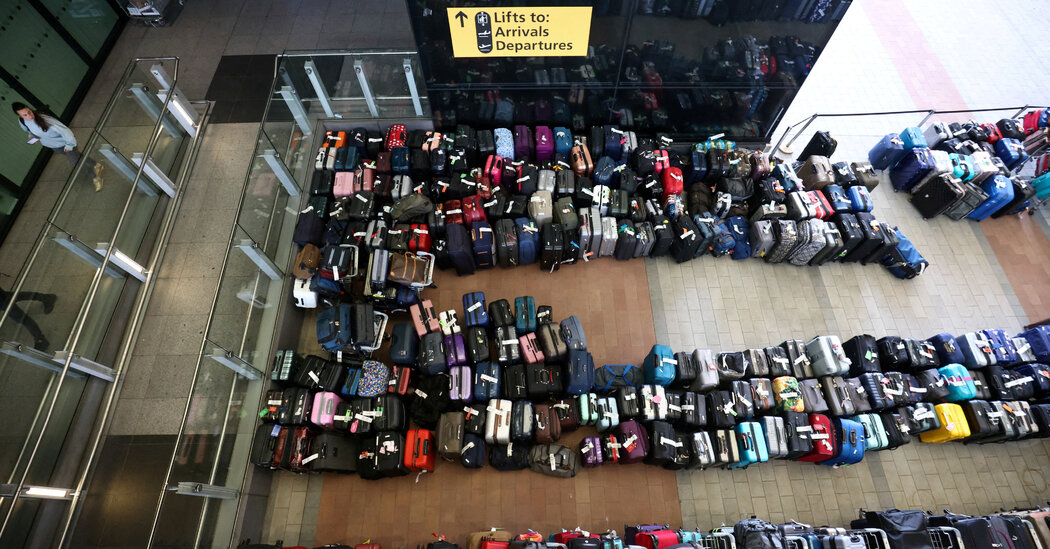The Apple AirTag tracking device that Lily Datta had placed in her luggage before leaving Cleveland on June 27 showed the suitcase had arrived in Paris the following day. That perplexed Ms. Datta because she and her family had no plans to go to Paris. Their destination was Vienna, with stops in Washington, D.C. and Barcelona to get there, but not Paris. It was the family’s first foray abroad since the start of the pandemic, a trip to celebrate her son Dev’s high school graduation.
Ms. Datta filed a lost luggage claim at the airport, but when the suitcase was not delivered to their hotel in Vienna the next morning as promised, she began emailing the airline, sharing the bag’s location (according to the AirTag) daily. She received no response. Even more frustrating, she said, was that when she called the customer service number she had been given, she “just got a recording — no one ever picked up and there was no way to leave a message.”
Surging air travel demand and airport staffing shortages have made this a bedeviling summer when it comes to lost and delayed checked luggage. Incidents like the recent baggage system malfunction at London’s Heathrow Airport, which caused such big backups that flights were canceled to give workers a chance to sort out the mess, have only added to the misery.
While the number of mishandled bags had been decreasing over the past decade, partly because of new technology, the last few years have changed that trajectory. The number of delayed or lost bags rose to 6 out of 1,000 bags this February, from 5 out of 1,000 in February 2020, according to the most recent report from the Department of Transportation.
The system is now operating beyond its capacity, said William McGee, the senior fellow for aviation at the American Economic Liberties Project, a nonpartisan organization that promotes equal access to economic markets. “This is the worst summer meltdown for airline customer service in the 37 years I’ve spent working in, writing about and advocating about the airlines,” he said.
After a few days with no word from the airline, Ms. Datta and her husband, Alan Peyrat, began emailing various executives at United Airlines and Austrian Airlines, which had both handled the luggage. They also reached out via social media, and enlisted the help of their hotel concierge. Seven days after they arrived in Europe, Ms. Datta received an email response from Austrian Airlines. A representative wrote, with apologies, that…
Click Here to Read the Full Original Article at NYT > Travel…
